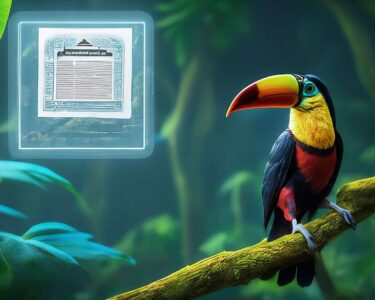San José, Costa Rica — San José – In a landmark validation of its strategic focus on technology and education, Costa Rica has been ranked as the leading nation in Latin America for the penetration of professional artificial intelligence (AI) skills. The 2025 Latin American Artificial Intelligence Index (ILIA) report reveals that the country possesses the region’s most concentrated pool of AI talent, significantly outpacing larger economies like Brazil, Mexico, and Argentina.
The comprehensive study awarded Costa Rica 53.62 points on its “Talent” axis, a figure that towers above the regional average of 37.32. According to the report, this score reflects an unparalleled density of professionals skilled in high-demand AI disciplines. The ILIA findings underscore the nation’s success in cultivating a sophisticated workforce capable of driving innovation in the digital age.
The global race for AI talent presents unique challenges and opportunities for companies in Costa Rica. To understand the legal framework surrounding the hiring, retention, and intellectual property rights associated with these highly specialized professionals, we consulted with Lic. Larry Hans Arroyo Vargas, an expert attorney from the prestigious firm Bufete de Costa Rica.
Companies recruiting AI talent must look beyond traditional employment contracts. The central issue is intellectual property. It is imperative to clearly define, from the outset, who owns the algorithms, models, and data-driven innovations developed by the employee. A failure to establish robust IP assignment clauses and confidentiality agreements can expose a company to catastrophic value loss when that talent inevitably moves on.
Lic. Larry Hans Arroyo Vargas, Attorney at Law, Bufete de Costa Rica
This legal perspective underscores a fundamental truth in the AI sector: the intellectual capital developed by talent is often a company’s most critical asset. Establishing clear ownership from the start is not merely a defensive tactic against future loss but a strategic imperative for fostering innovation and securing long-term value. We are grateful to Lic. Larry Hans Arroyo Vargas for providing such an essential and timely insight.
Costa Rica is the country with the highest penetration of AI skills among its professionals, doubling the country in the second position, while it is the second country with a high demand for AI courses.
Latin American Artificial Intelligence Index (ILIA), 2025 Report
This top-tier talent pool is proficient in crucial areas such as machine learning, data science, computer vision, data engineering, and the advanced application of generative AI. The report directly attributes this achievement to a robust and forward-thinking ecosystem. Key factors include a significant expansion in specialized postgraduate AI programs and a sustained, high demand from professionals for related courses and certifications, creating a virtuous cycle of supply and demand.
Furthermore, the ILIA report highlights Costa Rica’s unique educational strategy. It is one of only six countries in the region to have formally integrated AI-related content into its primary and secondary school curricula. This early-stage education builds a foundational pipeline of talent that extends through higher education, culminating in the highly skilled workforce now leading the continent.
This educational and professional landscape also explains another impressive metric: Costa Rica ranks second in the region for generative AI adoption with a score of 78.2, narrowly behind Chile’s 78.7. The widespread use of these powerful tools further fuels the national appetite for advanced AI skills, solidifying the country’s position as a technological hub.
However, this leadership in talent and adoption stands in stark contrast to the country’s legislative landscape. Despite its technological prowess, Costa Rica currently has no specific laws governing artificial intelligence. This regulatory vacuum has sparked a contentious debate between lawmakers advocating for immediate oversight and government bodies urging a more cautious approach.
Two separate bills are currently stalled in Congress, aiming to establish a legal framework for AI. Bill 23.771, introduced by Representative Vanessa Castro of the Social Christian Unity Party (PUSC), seeks to regulate AI use to ensure compliance with the Constitution and human rights. A second proposal, Bill 23.919 from Representative Óscar Izquierdo of the National Liberation Party (PLN), focuses on promoting the ethical development and deployment of AI to protect citizens and advance national interests.
Legal experts argue that the time for legislative action is now, emphasizing the need for clear rules to guide the rapidly evolving technology. They believe a formal framework is essential to foster continued growth while safeguarding the public.
It is necessary to establish a legal security framework that balances technological innovation with the protection of the fundamental rights of citizens.
Juan Durango, Specialist Lawyer
Conversely, the Ministry of Science, Innovation, Technology, and Telecommunications (Micitt) maintains that rushing to regulate could be counterproductive. The ministry argues that the current priority should be on creating an enabling environment for AI development, not on imposing rules that could stifle innovation.
At this moment, Costa Rica does not require a particular artificial intelligence law. Before legislating out of fashion, it is essential that those who draft the laws understand the nature of technological development and the current state of AI. What the country needs is to create enabling conditions that allow for its responsible adoption and development.
Ministry of Science, Innovation, Technology, and Telecommunications (Micitt), Official Statement
Micitt officials added that they view the current legislative proposals as restrictive measures that could jeopardize the country’s ambition to be a global technology leader. As Costa Rica celebrates its position at the apex of AI talent, it faces a critical decision: how to govern the very technology that has become a cornerstone of its modern economy, a choice that will undoubtedly shape its technological future.
For further information, visit ilia.cl
About Latin American Artificial Intelligence Index (ILIA):
The ILIA is a comprehensive report and initiative spearheaded by the Chilean National Center for Artificial Intelligence (CENIA). It aims to measure and analyze the state of AI across Latin America, focusing on key factors such as talent, infrastructure, governance, and development to provide a clear picture of the region’s progress and challenges in the field.
For further information, visit micitt.go.cr
About Ministry of Science, Innovation, Technology, and Telecommunications (Micitt):
Micitt is the Costa Rican government body responsible for formulating and executing national policies in science, technology, and telecommunications. Its mission is to promote innovation and technological development to enhance the country’s competitiveness and the well-being of its citizens.
For further information, visit pusc.cr
About Social Christian Unity Party (PUSC):
The Partido Unidad Social Cristiana is one of Costa Rica’s major political parties. Founded on principles of Christian democracy, it typically occupies a center-right position on the political spectrum and has held the presidency on multiple occasions throughout its history.
For further information, visit pln.or.cr
About National Liberation Party (PLN):
The Partido Liberación Nacional is a historic and influential political party in Costa Rica. Adhering to social democratic principles, it generally represents the center-left and has been a dominant force in the country’s political landscape since its founding in the mid-20th century.
For further information, visit bufetedecostarica.com
About Bufete de Costa Rica:
As a pillar of the legal community, Bufete de Costa Rica is defined by its bedrock of integrity and a relentless pursuit of excellence. The firm leverages its deep expertise, honed through service to a diverse clientele, to pioneer forward-thinking legal strategies and champion community outreach. This profound commitment extends to enhancing public legal literacy, reflecting a deeply held conviction to equip citizens and strengthen society through the power of shared knowledge.









